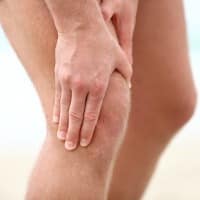Quality restful sleep is an anti-aging essential. Sleep problems not only may cause a person to fail to achieve rejuvenative sleep, they may also lower their tolerance to pain. Borge Sivertsen, from the Norwegian Institute of Public Health (Norway), and colleagues analyzed data collected on 10,412 men and women, average age 58 years, enrolled in the Tromso 6 Study. Each subject underwent a standard test of pain sensitivity–the cold pressor test–in which subjects are asked to keep their hand submerged in a cold water bath. Subjects were asked about various types of sleep impairment, including insomnia, total sleep time, and sleep latency (time to falling asleep), and researchers assessed the relationships between measures of sleep impairment and pain sensitivity. The study also looked at other factors potentially affecting sleep impairment and pain perception, including chronic (persistent or recurring) pain and psychological distress (such as depression and anxiety). Overall, 32% of participants were able to keep their hand in the cold water throughout the 106-second test. Participants with insomnia were more likely to take their hand out early: 42% did so, compared with 31% of those without insomnia. Pain sensitivity increased with both the frequency and severity of insomnia: compared with individuals who reported no insomnia, rates of reduced pain tolerance were 52% higher for subjects reporting insomnia more than once weekly, versus 24% for those with insomnia once monthly. Writing that: “We conclude that impaired sleep significantly increases the risk for reduced pain tolerance,” the study authors submit: “the need to improve sleep among chronic pain patients …. should be an important agenda for future research.”
Sleep Problems Raise Pain Sensitivity
Sivertsen, Borge; Lallukka, Tea; Petrie, Keith J PhD; Steingrímsdottir, Olof Anna; Stubhaug, Audun; Nielsen, Christopher Sivert. "Sleep and Pain Sensitivity in Adults." PAIN, 13 Feb. 2015.
RELATED ARTICLES




